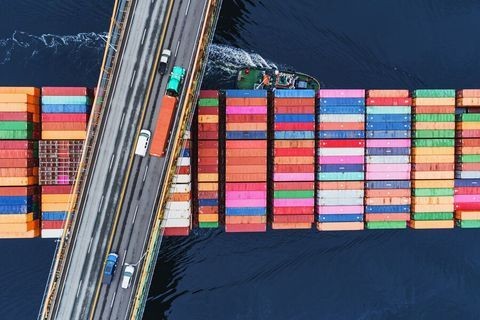Robert Clifton Burns
Overview
Robert Clifton Burns is a senior counsel in Crowell & Moring’s Washington, D.C. office. Clif focuses his practice on export controls, economic sanctions, customs, national security, and the Foreign Corrupt Practices Act. He represents clients in France, Germany, the Netherlands, Australia, and the United States.
Career & Education
- Northwestern University, B.A., with honors, 1975
- Northwestern University Pritzker School of Law, J.D., cum laude, 1978
- District of Columbia
- U.S. Court of Appeals for the Seventh Circuit
- U.S. Court of Appeals for the D.C. Circuit
- U.S. Court of Appeals for the Federal Circuit
- French
Robert's Insights
Client Alert | 14 min read | 11.01.24
Protectionist Trade Policies in the New Administration: A Question of Degree
Regardless of what happens in the U.S. elections on November 5, one theme is clear – protectionist policies in international trade are here to stay. To some extent, the key difference between the trade policies of a Harris administration and a second Trump Administration may be one of degree. Vice President Harris is expected to continue the more cautious, incremental approach to trade policy favored by the Biden Administration. A second Trump administration, on the other hand, is expected to pick up where it left off and aggressively use the trade tools at its disposal to try to reset and renegotiate trade relationships with many of the U.S.’s trading partners—particularly those countries with whom the U.S. has a trade deficit.
Press Coverage | 08.26.24
Press Coverage | 05.10.24
U.S. Moves To Sanction China Military Vendor CETC's Chip Arm
Speaking Engagement | 04.18.24
"Navigating the Complexities of U.S. Economic Sanctions and Export Controls: Compliance and Risk Mitigation for Singapore Companies," Singapore Business Federation, Singapore
Insights
"Navigating the Complexities of U.S. Economic Sanctions and Export Controls: Compliance and Risk Mitigation for Singapore Companies," Singapore Business Federation, Singapore
|04.18.24
Russia Sanctions Led American Express To Cut Financial Lifeline In Ukraine
|04.22.22
Wall Street Journal
Speed, Complexity of Russia Sanctions Regime Unprecedented, Lawyers Say
|03.03.22
Export Compliance Daily
Millions of Euros From The EU Are Ending Up In Tajeddine Network Bank Accounts
|11.24.21
L'Orient Today
New DOJ Voluntary Disclosure Policies May Create Complications For Industry, Lawyer Says
|08.19.20
Export Compliance Daily
Robert's Insights
Client Alert | 14 min read | 11.01.24
Protectionist Trade Policies in the New Administration: A Question of Degree
Regardless of what happens in the U.S. elections on November 5, one theme is clear – protectionist policies in international trade are here to stay. To some extent, the key difference between the trade policies of a Harris administration and a second Trump Administration may be one of degree. Vice President Harris is expected to continue the more cautious, incremental approach to trade policy favored by the Biden Administration. A second Trump administration, on the other hand, is expected to pick up where it left off and aggressively use the trade tools at its disposal to try to reset and renegotiate trade relationships with many of the U.S.’s trading partners—particularly those countries with whom the U.S. has a trade deficit.
Press Coverage | 08.26.24
Press Coverage | 05.10.24
U.S. Moves To Sanction China Military Vendor CETC's Chip Arm
Speaking Engagement | 04.18.24
"Navigating the Complexities of U.S. Economic Sanctions and Export Controls: Compliance and Risk Mitigation for Singapore Companies," Singapore Business Federation, Singapore





